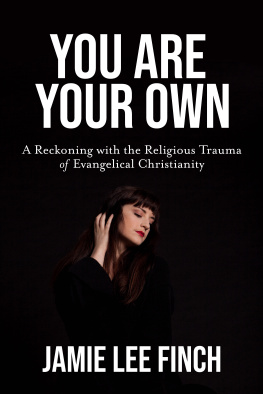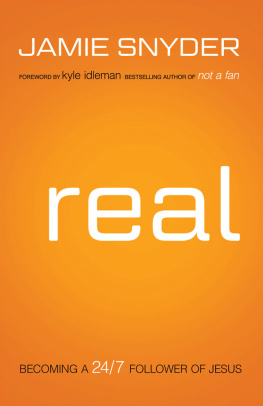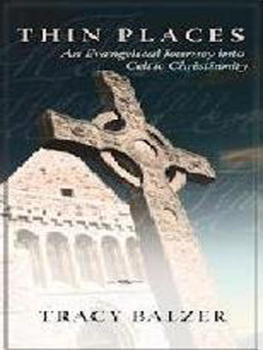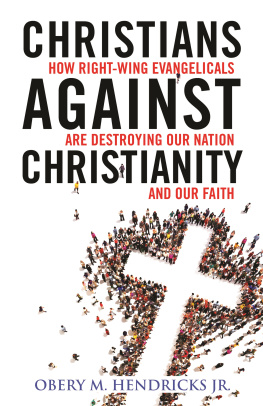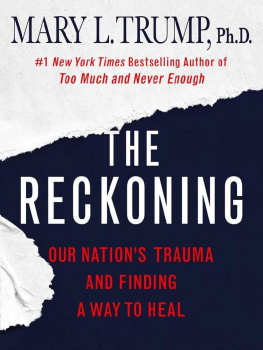Jamie Lee Finch - You Are Your Own: A Reckoning with the Religious Trauma of Evangelical Christianity
Here you can read online Jamie Lee Finch - You Are Your Own: A Reckoning with the Religious Trauma of Evangelical Christianity full text of the book (entire story) in english for free. Download pdf and epub, get meaning, cover and reviews about this ebook. year: 2019, publisher: Independently published, genre: Science / Home and family. Description of the work, (preface) as well as reviews are available. Best literature library LitArk.com created for fans of good reading and offers a wide selection of genres:
Romance novel
Science fiction
Adventure
Detective
Science
History
Home and family
Prose
Art
Politics
Computer
Non-fiction
Religion
Business
Children
Humor
Choose a favorite category and find really read worthwhile books. Enjoy immersion in the world of imagination, feel the emotions of the characters or learn something new for yourself, make an fascinating discovery.
- Book:You Are Your Own: A Reckoning with the Religious Trauma of Evangelical Christianity
- Author:
- Publisher:Independently published
- Genre:
- Year:2019
- Rating:3 / 5
- Favourites:Add to favourites
- Your mark:
- 60
- 1
- 2
- 3
- 4
- 5
You Are Your Own: A Reckoning with the Religious Trauma of Evangelical Christianity: summary, description and annotation
We offer to read an annotation, description, summary or preface (depends on what the author of the book "You Are Your Own: A Reckoning with the Religious Trauma of Evangelical Christianity" wrote himself). If you haven't found the necessary information about the book — write in the comments, we will try to find it.
Jamie Lee Finch: author's other books
Who wrote You Are Your Own: A Reckoning with the Religious Trauma of Evangelical Christianity? Find out the surname, the name of the author of the book and a list of all author's works by series.
You Are Your Own: A Reckoning with the Religious Trauma of Evangelical Christianity — read online for free the complete book (whole text) full work
Below is the text of the book, divided by pages. System saving the place of the last page read, allows you to conveniently read the book "You Are Your Own: A Reckoning with the Religious Trauma of Evangelical Christianity" online for free, without having to search again every time where you left off. Put a bookmark, and you can go to the page where you finished reading at any time.
Font size:
Interval:
Bookmark:

You Are Your Own:
A Reckoning with the Religious Trauma of Evangelical Christianity
By Jamie Lee Finch
To Twitter
Introduction
This work consists of a brief overview of the history of Evangelical Christianity in the United States that is rarely told to young believers brought up in the religion. My personal narrative my experiences of growing up in Evangelical Christianity, and its damaging effects grounds what follows. Drawing on scholarly research, I explain how the cumulative effects of the psychologically problematic elements of these beliefs so often lead to the religious trauma syndrome identified in people raised with them (Winell). Finally, this work includes insight into and recommendations for recovery and rebuilding for survivors who have left the extremist belief systems they were raised in. Inspired by my own experience as a former devout Evangelical believer, this work is the beginning of the larger, life-long work I will continue not only for the sake of others but also for myself to share my story after 20 years of not being able to tell the truth.
When I first arrived at Goddard to study, a faculty member advised us as new students to pay less attention to the conversations we were having with our advisors in our study groups, and more attention to the conversations we were finding ourselves engaging in around the dinner table. They encouraged us to take notice of what we were saying whenever people would lean in and ask us to tell them more, and informed us that those moments were the indicators of what we were actually here to study. So I began to pay attention; and what I noticed was that whenever I was talking about my own former experience with religious devotion, it became clear very quickly that people were leaning in. Throughout most of my life, I have spanned the spectrum of Evangelicalism, even moving to a different country to join (what I obviously didnt know at the time was) a cult. And during those dinner time discussions, I not only found a solidarity with so many people explaining that was their background too, but witnessed a newly ignited passion in so many of them as they would respond with I hadnt thought of it that way before or this makes me feel less crazy and alone.
Now, holding space for the recovery from this exact background is what I do for a living as an embodiment coach who specializes in helping people heal from religious trauma and sexual suppression. What lies ahead in these pages is equal parts academic study as it is lived experience. While I do not tell any specific, confidential client stories here, the recognition and explanations of the anxieties, imbalances, and dysfunctions due to the trauma of this religious devotion that they share with me daily are all over these pages. Additionally, I recognize the limitations present in this work rooted in the pain of my personal experience, anger I often feel at the institution on behalf of my clients and loved ones, and the time constraints of only a year and a half of study and writing. I was unable to go as in depth into specific traumatizing doctrines as well as the brain science of trauma as I would have liked, and I recognize that because of this there are many people for whom this work may not resonate. But exists for the millions of people who share my own experience and language, and my limitations do not invalidate the fact of this particular trauma present in our minds and bodies. It is my hope that this work will serve to validate and comfort the survivors as well as educate those either still within Christian practices or those who have never been familiar with belief at all.
History and Overview
-----
Do you not know that your bodies are temples of the Holy Spirit, who is in you, whom you have received from God? You are not your own; you were bought at a price. Therefore honor God with your bodies.
1 Corinthians 6:19-20 NIV
-----
Its inevitable, predictable, one of the few things Ive grown to be able to count on these days. For the past few years of academic work and building my coaching business, it has happened almost the exact same way every time. No matter what part of the country, no matter what situation or context in which were meeting, no matter what led us to this point in the conversation upon telling someone what I do for a living or how it informs what Ive been writing, I receive one of two reactions.
The first is from folks who are mostly on the outside and have spent the majority of their life there. In light of the 2016 election of Donald J. Trump to the office of the Presidency of the United States, they ask: How did we get here? Can you explain this to me? And I tell them that I hate to say that I know exactly what they mean. I receive this inquiry primarily from people who identify as non or nominally religious, but occasionally it also comes from individuals who identify somewhere along the spectrum of mainline Protestant Christianity. Regardless, the one thing that they all have in common is that they desire context for what they have seen: That 81% of white Evangelical Christians in America voted for Trump, and that he received the bulk of his support from prominent white Evangelical leaders like Jerry Falwell Jr., Franklin Graham, Rick Joyner, Robert Jeffress, James Dobson, and their followers.
Even as I was first drafting this workin early 2018, the United States was living in the shadow of a series of bombings in Austin, Texas acts of terror against people of color committed by a white male raised an Evangelical Christian. The sad reality is that this violence has not been given the proper classification by the media that it deserves, not only because of our nations embedded bias towards white supremacy, but also because there is not nearly enough cultural competency surrounding the reality of the subcultures that exist within Evangelicalism and the true harm they cause. By and large, the media does not grasp the full scope of the belief and just how easily and often it bends towards extremism.
But its only by having been there that anyone could truly see this, and thats why the second reaction I inevitably receive from people after I tell them what I do comes from those who have also left the fold: I get it. Ive been there. Me too. Because we see the sickness so clearly. We know what it taught us about ourselves and what it told us about the way the world works, so we know exactly how our culture and our country got here because its devastatingly clear to us how long so many have already been here. That specific sickness, however, can often be more easily identified in the public displays of institutional violence and more difficult to notice when it is active inside of the bodies and minds of individual people.
The truth is that religious trauma has consequences; a significant and long-lasting impact on the brain and the body, and I believe that the specific form of religious belief that is Evangelical Christianity has noticeable and troubling effects on people particularly for the ones who were raised within it as children. Survivors must have the permission to know and be in touch with the full scope of what has happened to them if they are going to heal. They have to be willing, able, and brave enough to become curious about what happened in their minds during their developmental years and what stories their bodies are telling now.
This work intends to act as a beacon, to release that permission, and to give an accurate name to the often mysterious embodied experience of countless people who are coming out of the belief and practice of Evangelicalism. For so many of my friends and clients alike, when I tell them I believe that what theyre experiencing in their psychology and physiology is not only normal in light of their experience, but deserves the term trauma, the relief is palpable. As Dr. Wendell Watters points out in his attempt to frame a similar hypothesis in his work
Font size:
Interval:
Bookmark:
Similar books «You Are Your Own: A Reckoning with the Religious Trauma of Evangelical Christianity»
Look at similar books to You Are Your Own: A Reckoning with the Religious Trauma of Evangelical Christianity. We have selected literature similar in name and meaning in the hope of providing readers with more options to find new, interesting, not yet read works.
Discussion, reviews of the book You Are Your Own: A Reckoning with the Religious Trauma of Evangelical Christianity and just readers' own opinions. Leave your comments, write what you think about the work, its meaning or the main characters. Specify what exactly you liked and what you didn't like, and why you think so.

